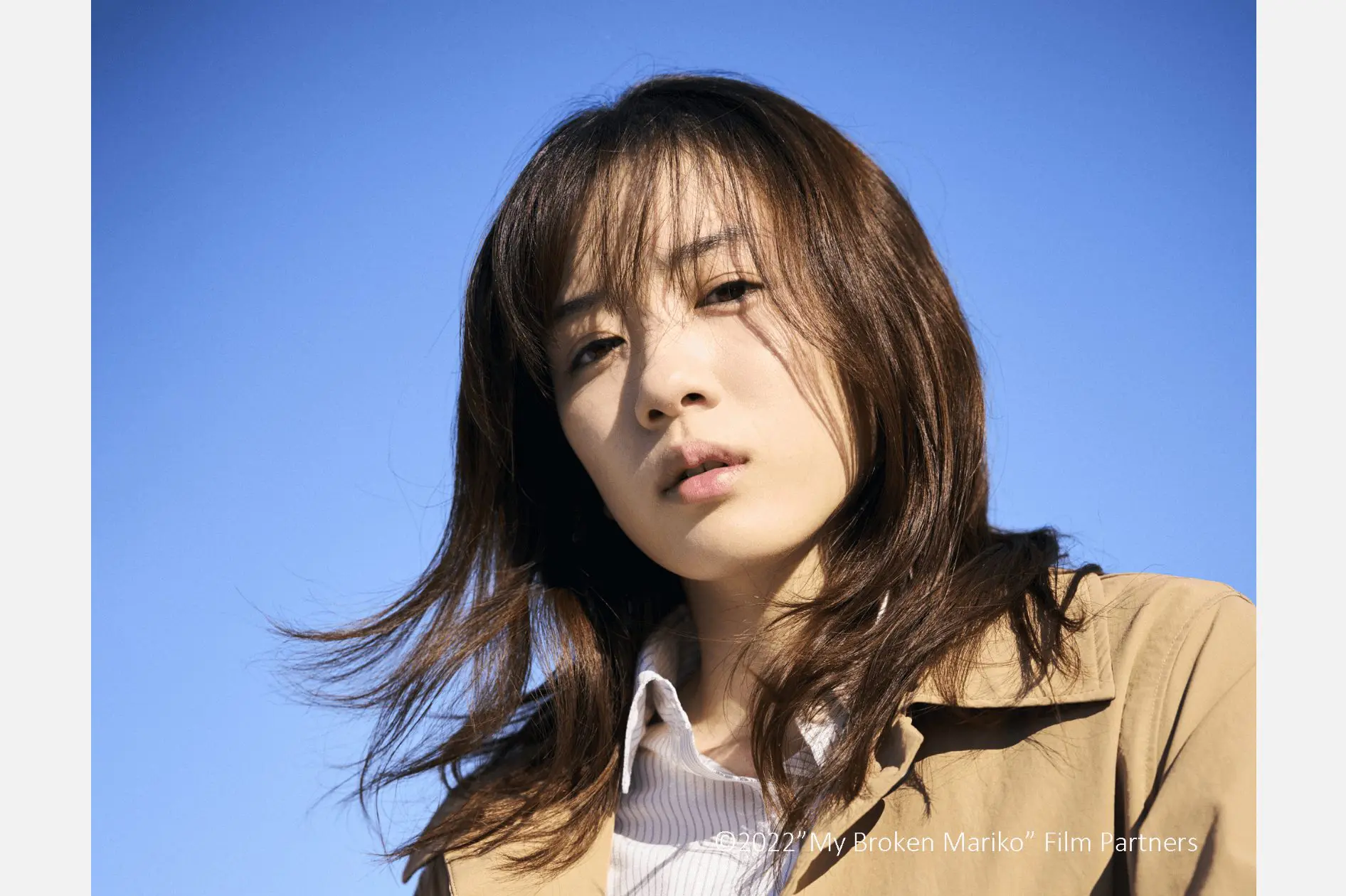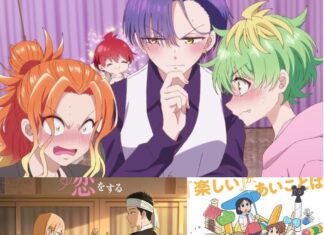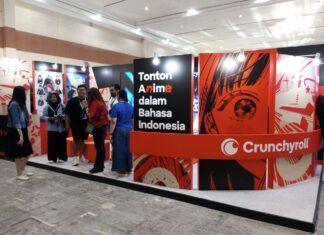Last June, The Japan Foundation brought back the Japanese Film Festival (JFF) Online, an annual online film festival held to spread and promote Japanese films overseas. For this year’s event, the festival was held in 27 countries, with a list of 23 films (19 of them available in Indonesia) and 2 drama series are available online on the JFF website from 5 June to 3 July 2024.
In addition to the online film festival itself, The Japan Foundation Indonesia also held numerous fringe events for the festival. One of those events was an online talk show with Kosuke Mukai, the scriptwriter of My Broken Mariko (2022), a film that was screened during JFF Online 2024. This talk show was held on 12 June 2024 via Zoom in collaboration with BINUS University.
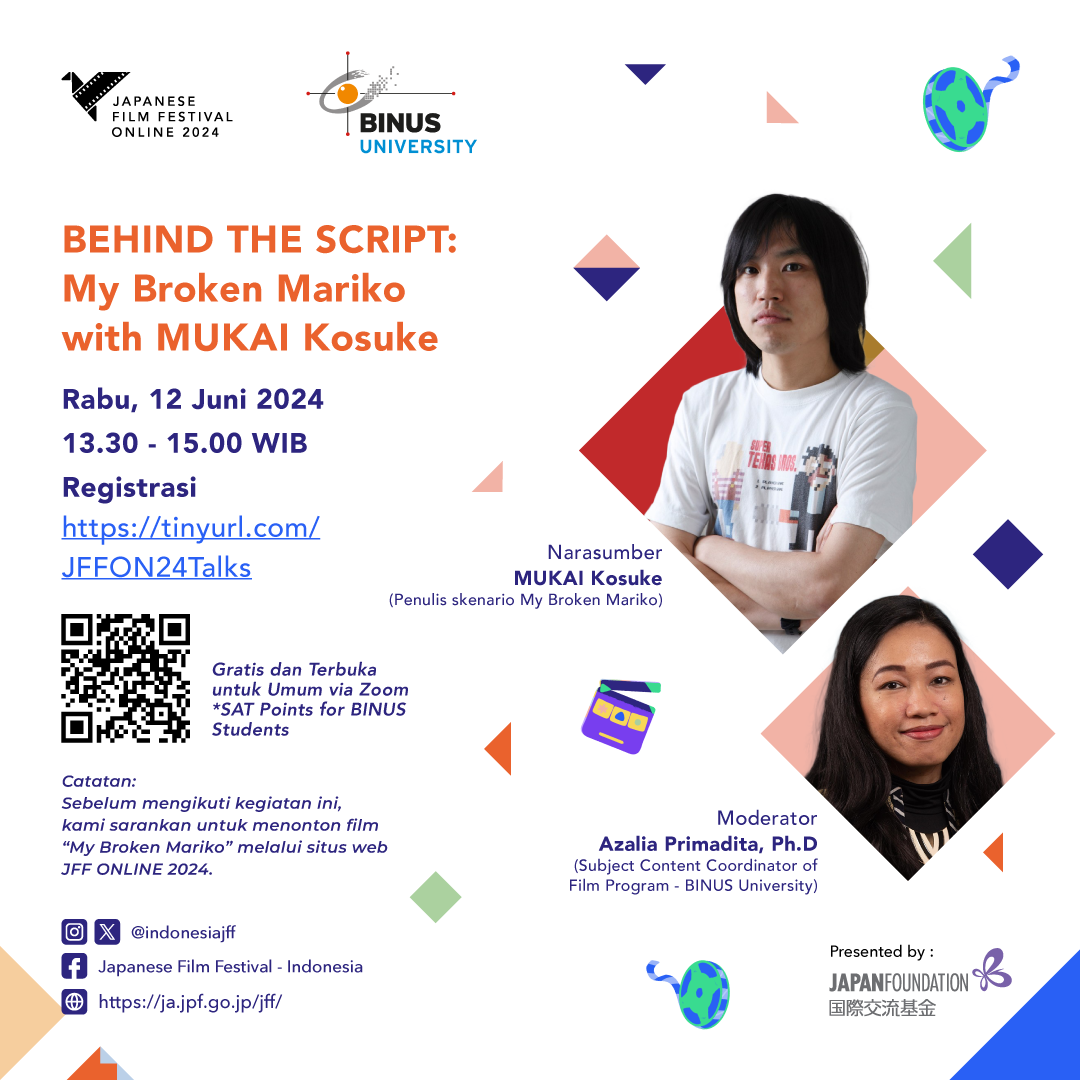
My Broken Mariko is adapted from the manga by Waka Hirako. The film depicted Tomoyo Shiino’s mournful journey to the shoreline carrying the cremated remains of her best friend since childhood, Mariko Ikagawa. This work involves sensitive topics related to death and the complicated feelings surrounding your loss, centered on a young woman grieving over her deceased friend, who had to go through intense suffering caused by the male figures in her life.
Assisted by the interpreter, Mukai explained his writing process by answering questions from enthusiastic attendees. Mukai revealed that he joined the production crew for My Broken Mariko because of the director, Yuki Tanada, who is a big fan of the manga. Director Tanada is also the one who introduced the manga to Mukai. Tanada conveyed her interest in a film adaptation, but she was worried that her subjective views as a fan of the manga possibly influenced her direction for the film. Mukai was recruited to serve a fresh and objective point of view towards the work, and he agreed because he thought the length of the manga was easily adaptable into a film format.
As a fan of the original work, Mukai tried his best to come up with a faithful adaptation. In the Japanese entertainment industry, there is an aspect that Mukai called “manga dialect”, or a certain language style in Japanese that is only encountered in fictional works and rarely used in real-life conversations. Mukai decided to preserve dialogues in this “dialect” as used in the Mariko manga so they could maintain an accurate story of Mariko.
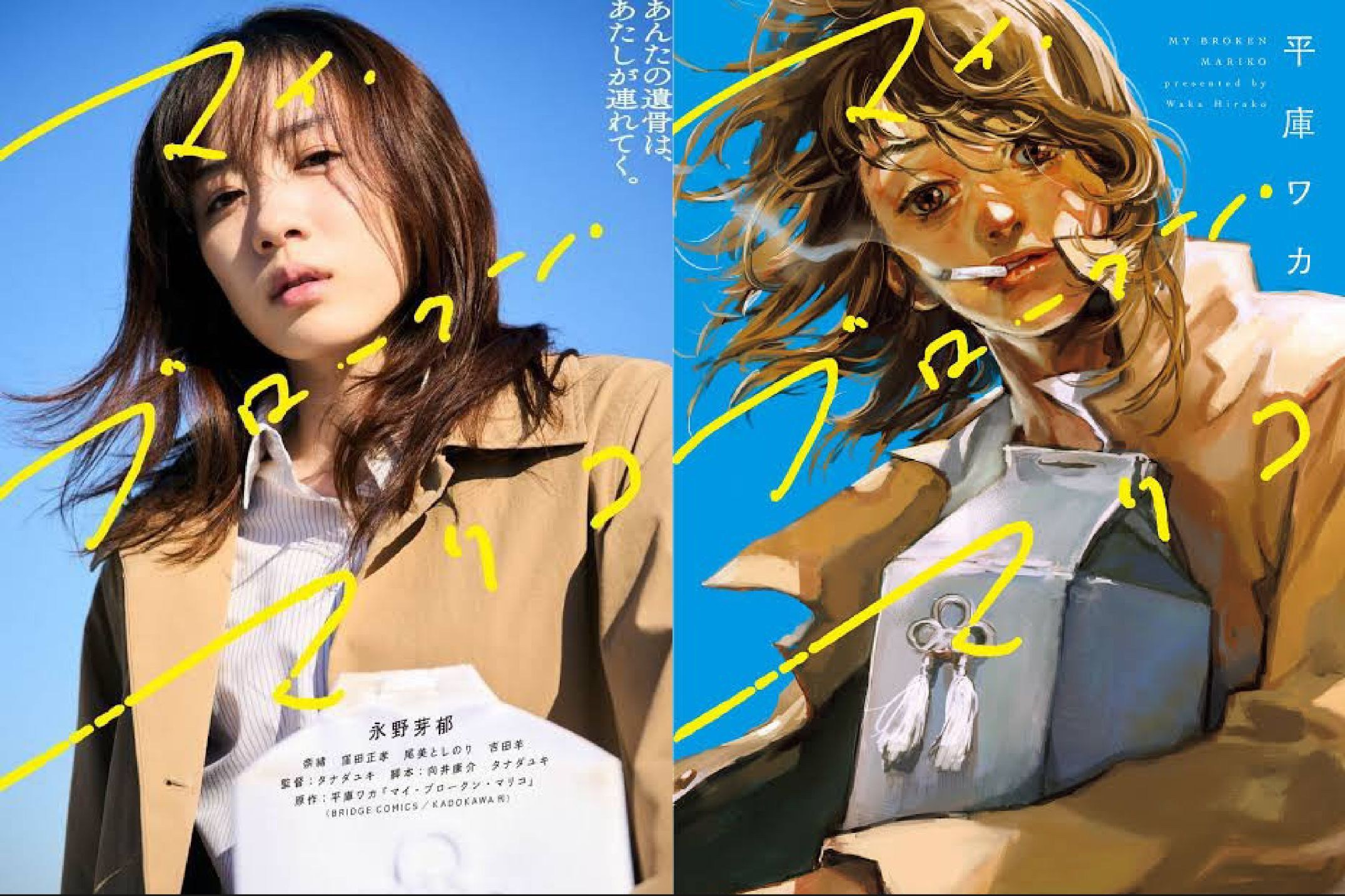
Mariko portrays an abundance of complex emotions stemming from traumatic incidents, such as the loss of a loved one, domestic violence, and abusive relationships. Mukai struggled the most with conveying the emotional aspect of the original work. There were also times when Mukai, as a man, needed assistance in writing the actions and dialogues of Mariko’s main heroines so they could feel more natural from a fellow woman’s perspective. Throughout the writing process, Mukai received a lot of guidance from the director, producers, and the original author of Mariko so he could reach his goal of creating an adaptation with at least 90% accuracy from the original work.
Another challenge Mukai faced was to develop the characters’ dynamics while also maintaining their roots as depicted in the manga. Mukai brought up the character Makio as an example of this, who doesn’t appear a lot in the manga but was given more screen time in the film through original extra scenes. Mukai considered Makio as a catalyst for Shiino’s acceptance in her stages of grieving over Mariko, so he decided to write additional scenes for Makio to further elaborate his role in facing Shiino’s internal conflicts while also maintaining his original characteristics. Despite that, Mukai also didn’t want to add too many original scenes for Mukai so the focus of the film doesn’t shift from Shiino and Mariko.
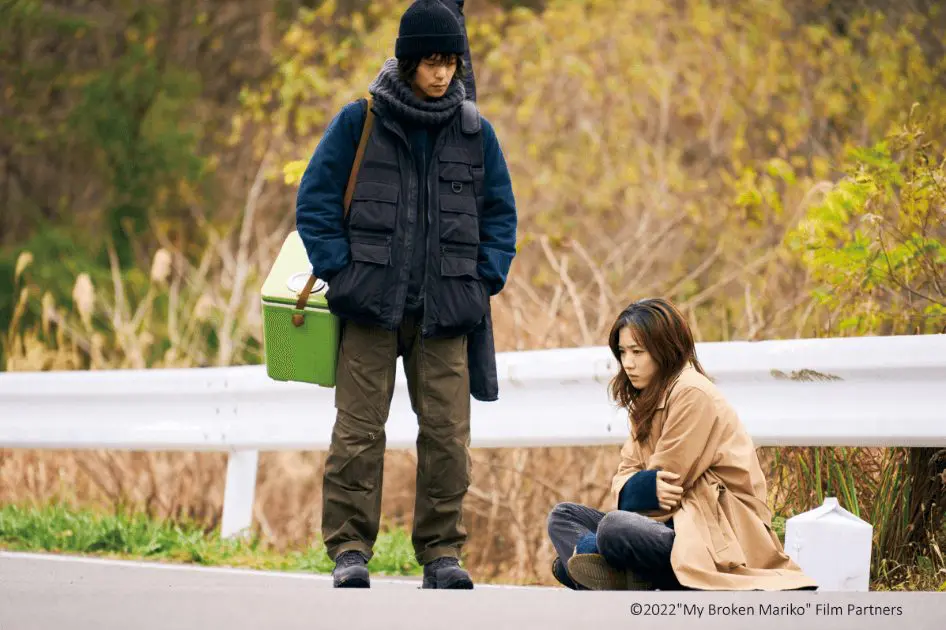
Mukai then proceeded to describe Mariko as a fussy (‘mendoi’, as he said) character who refuses to listen to Shiino’s advice, yet at the same time forbids Shiino from engaging in romantic relationships. This is because Mariko considers Shiino an irreplaceable figure in her life, and this relationship of theirs is very intriguing for Mukai. From how he sees them, despite Shiino feeling that Mariko is the one who is attached to her, the other way around also applies to her. Mukai describes Mariko as a portrayal of two best friends experiencing loneliness (‘kodoku’), which results in them being heavily dependent on each other. This aspect of their relationship is what Mukai, alongside the director and producers, aimed to portray properly.
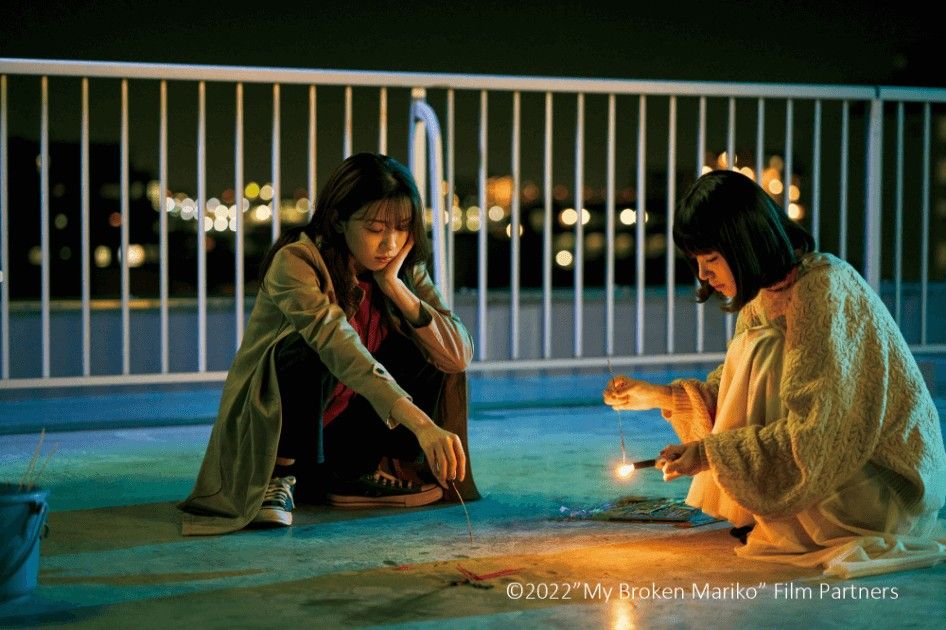
Aside from discussing Mariko, Mukai also responded to questions regarding scriptwriting and film productions in general. According to Mukai, an important aspect of writing a film script is interpreting a textual narration into visible actions and gestures that can represent the narration. When a character is described to be crying, it can be reflected in directions such as making the character stumble onto the ground as they weep. Dialogues can be added next to intensify the character’s setting further, but the main point for a visual work like a film is still the visual movements.
One interesting part of the talk was when an attendant asked about popular movie genres in Japan. Mukai named the youth romance genre for his answer. It leads to a comparison with the Indonesian film industry. In Indonesia, the horror genre is considered as popular right now, with KKN di Desa Penari mentioned as an example. Mukai responded by sharing his thoughts on Japanese horror movies, which he found interesting due to how commonly the stories are set to happen in summer. It was fun to watch the speakers share their thoughts on the stereotypes between Indonesian and Japanese horror movies.
The talk show ended with Mukai sharing his personal wish to bring more of his works in the future. He advised the attendees to continue making creative works without pausing or abandoning the work midway. From his experience, he often gained newfound realizations, points of view, or even knowledge after finishing his work. Whatever happens, just continue the process, because something is waiting for you at the end of the journey. Mukai also revealed that he was currently writing a new script, which is planned to be finished around August this year. He also currently works on another film project, which is planned to be released in 2025.
The Indonesian Anime Times

